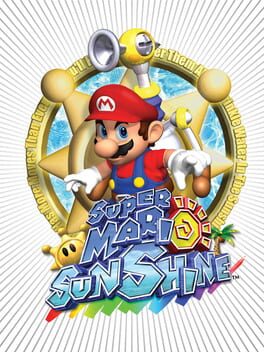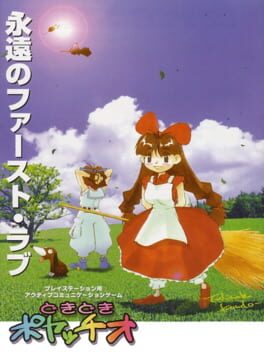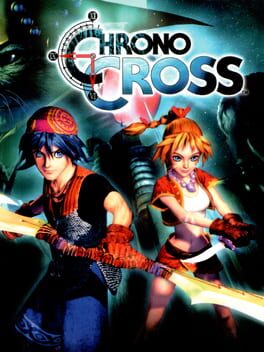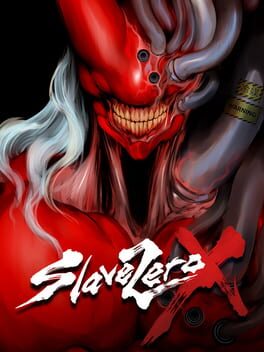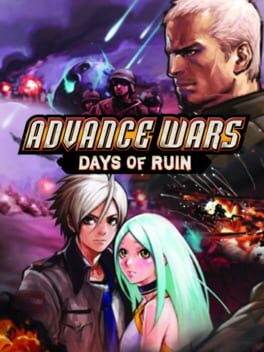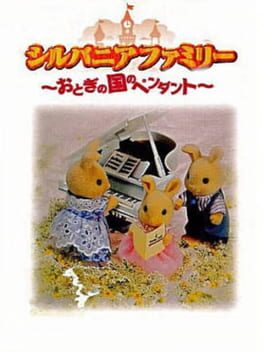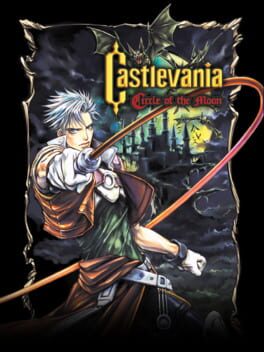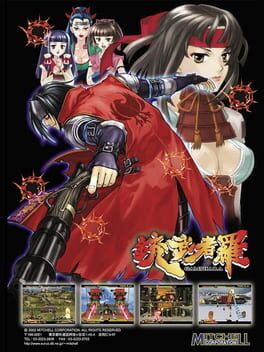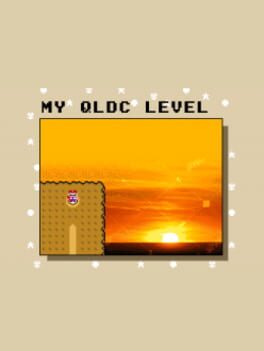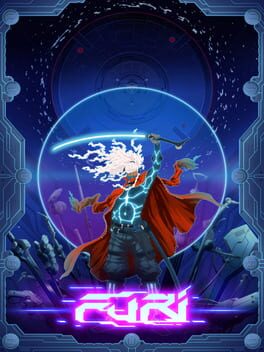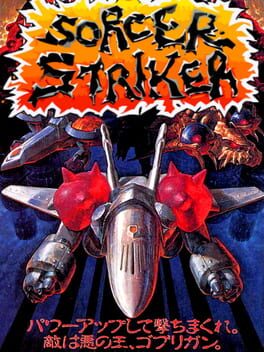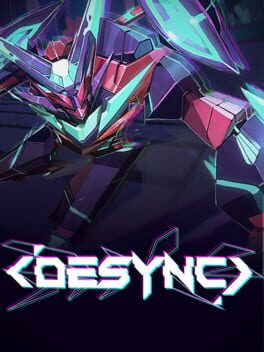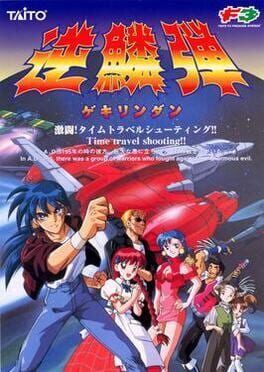Pangburn
4324 Reviews liked by Pangburn
Super Mario Sunshine
2002
I finally did muster through Super Mario Sunshine after about three and a half years of leaving it on the backburner, and I must say I still don't get it. It's not all bad but it's like, not very fun to me at all. I found its best moments to be pretty decent, and put up against Super Mario 64 and Super Mario Galaxy I don't really think it stands a chance in most if not all fields. I did not gel with the aesthetic, controls, or level design nearly as much as in either of them.
The biggest thing that irks me about Sunshine, though, is it doesn't feel as open as it lets on. You can beat the game with a minimum of 50 shines (I completed it with 53), but rather than a basic threshold to close off the final level, like how you can get any 70 stars in 64 to reach the end, you are required to do all the first seven missions of each level. In order, too. You can't go out of order like you can in 64, you have to do mission 1, then mission 2, etc. This works fine in Galaxy because the level design reflects it better, it's already more linear to begin with in its design and progression. Sunshine's level design does not reflect its linearity, it presents itself as a lot more open and implies a lot more freedom than you're actually provided. The end result takes away the feeling of free exploration, and it begins to feel more like crossing off a checklist than finding things yourself and reaping the rewards for doing so. Some of these required missions are frankly quite awful as well. A few of the bosses (Petey Piranha 2, Manta) are super tedious and slow, and some other missions littered around are bordering on unacceptable. I could not locate any enjoyment to be found in the "chuckster" mission, for example, and there's just no way to get around it without enduring it. If you have a star in 64 you really hate, chances are you can just work around it, but such is not the case this time.
I figure you can warm up to this with enough playthroughs, but the first is deeply unsatisfying and unrewarding. A competently made and designed game for the most part, but mundane and unenjoyable especially in comparison to the high points surrounding it in the series. Why would I want to play it some more in order to warm up to it if the first playthrough was so consistently rough? I dunno, man. It just doesn't really make sense to me. I really see now why this seems to be the most divisive of the 3D Mario entries, and try as I might to enjoy myself during its runtime, I can't seem to do so often enough to really call it something I like as an overall experience. I'm just glad I at least have it off my back now.
The biggest thing that irks me about Sunshine, though, is it doesn't feel as open as it lets on. You can beat the game with a minimum of 50 shines (I completed it with 53), but rather than a basic threshold to close off the final level, like how you can get any 70 stars in 64 to reach the end, you are required to do all the first seven missions of each level. In order, too. You can't go out of order like you can in 64, you have to do mission 1, then mission 2, etc. This works fine in Galaxy because the level design reflects it better, it's already more linear to begin with in its design and progression. Sunshine's level design does not reflect its linearity, it presents itself as a lot more open and implies a lot more freedom than you're actually provided. The end result takes away the feeling of free exploration, and it begins to feel more like crossing off a checklist than finding things yourself and reaping the rewards for doing so. Some of these required missions are frankly quite awful as well. A few of the bosses (Petey Piranha 2, Manta) are super tedious and slow, and some other missions littered around are bordering on unacceptable. I could not locate any enjoyment to be found in the "chuckster" mission, for example, and there's just no way to get around it without enduring it. If you have a star in 64 you really hate, chances are you can just work around it, but such is not the case this time.
I figure you can warm up to this with enough playthroughs, but the first is deeply unsatisfying and unrewarding. A competently made and designed game for the most part, but mundane and unenjoyable especially in comparison to the high points surrounding it in the series. Why would I want to play it some more in order to warm up to it if the first playthrough was so consistently rough? I dunno, man. It just doesn't really make sense to me. I really see now why this seems to be the most divisive of the 3D Mario entries, and try as I might to enjoy myself during its runtime, I can't seem to do so often enough to really call it something I like as an overall experience. I'm just glad I at least have it off my back now.
A '90s PSX Life Sim I posted a song of on my music channel:
https://www.youtube.com/watch?v=msjpAsvJ5XU
JP-only, but great if you like life sims!
You play as a boy staying at his cousin's(?) bakery on a floating island for the summer. Each day you'll deliver bread to townspeople. Occasionally you can trigger events to get to know some of the girls better. It's typical genre fare, but feels less stiff than your harvest moon - characters all run around on their daily cycles and you often have to chase people down. Events trigger seemingly out of nowhere. It's confusing but works.
I like the game's lore. It's a floating island, but if you explore the tunnels below the surface you'll see distant ruins in chasms below you - out of reach... Complete with forboding music, this makes for some surprising atmosphere. I wasn't able to discover the lore behind it - alongside some suspicious/shifty characters - but I assumed that was all intentional. There are violent creatures in the outskirts of town, you can literally Die... some characters are witches with spooky cavern labs. it felt refreshing to be as in the dark as I presumed the villagers were, about the history of their island.
Certainly we can say the same is true of many of the places we live in. My hometown used to store missiles during the cold war, before that it was a training airfield for WW2... and today it's just soccer fields.
There's points to criticize in DDP but overall it's memorable and ultimately that's all I really care about. As you meet new characters and learn terms, you can ask other characters about other people, or the terms. Of course, most characters go "??? I don't know???" but on occasion you get a detailed response and it sheds light on some social relations of the character. Could've used a design pass or two but I appreciate it nonetheless.
https://www.youtube.com/watch?v=msjpAsvJ5XU
JP-only, but great if you like life sims!
You play as a boy staying at his cousin's(?) bakery on a floating island for the summer. Each day you'll deliver bread to townspeople. Occasionally you can trigger events to get to know some of the girls better. It's typical genre fare, but feels less stiff than your harvest moon - characters all run around on their daily cycles and you often have to chase people down. Events trigger seemingly out of nowhere. It's confusing but works.
I like the game's lore. It's a floating island, but if you explore the tunnels below the surface you'll see distant ruins in chasms below you - out of reach... Complete with forboding music, this makes for some surprising atmosphere. I wasn't able to discover the lore behind it - alongside some suspicious/shifty characters - but I assumed that was all intentional. There are violent creatures in the outskirts of town, you can literally Die... some characters are witches with spooky cavern labs. it felt refreshing to be as in the dark as I presumed the villagers were, about the history of their island.
Certainly we can say the same is true of many of the places we live in. My hometown used to store missiles during the cold war, before that it was a training airfield for WW2... and today it's just soccer fields.
There's points to criticize in DDP but overall it's memorable and ultimately that's all I really care about. As you meet new characters and learn terms, you can ask other characters about other people, or the terms. Of course, most characters go "??? I don't know???" but on occasion you get a detailed response and it sheds light on some social relations of the character. Could've used a design pass or two but I appreciate it nonetheless.
Chrono Cross
1999
Another entry from my List of the Thirty-Five Best Games I Played in 2023, now available à la carte:
On Chrono Cross (Or — "How I Developed a Palate for Poison")
My grandmother doesn’t live in Vermont anymore. A couple years ago, she and I went back there together and rented a place to stay to relive those days. Naturally, the rental had some similarities to her old place. We drove around, taking in familiar sights, waiting for the rest of the family to join us. I fired up Chrono Cross for the first time one evening, and promptly came down with a case of water poisoning.
If I believed in omens, I’d take that as a bad one. I touched a game about a character who finds himself in an eerie facsimile of home, itself the strange and twisted sequel of a beloved favorite, and it left me hurling into a toilet. The water supply we’d been drawing from was unfit for human consumption. I spent the recovery period with Chrono Trigger and Dragon Quest V on DS, beneath the more familiar ceiling of a family friend’s house. I’d later start writing a non-review about how I didn’t have to play Chrono Cross, eschewing the pretense of being some aspiring member of the Backloggd “videogame intelligentsia”. I don’t need “cred,” right??
Well.
I played Chrono Trigger again in 2023 at least twice, depending on how you define a “playthrough”. The first was because I’d just finished Final Fantasy X and wanted to make some unfair comparisons. The second was because I was three-fourths of the way through Chrono Cross and…wanted to make some unfair comparisons. Even in the thick of it, I was avoiding the inevitable.
So…About the Game
Cross makes every effort possible to be anything but a clean, obedient sequel to its father. And you know what? Good. Trigger’s development was predicated on originality, and should likewise be followed up with another adventurous convention-breaker. The “Chrono Trigger 2” advocated by the likes of Johnny Millennium doesn’t appeal to me; lightning doesn’t strike twice. Still, Cross is Trigger’s opposite even in ways it really shouldn’t be.
With the exception of its original PSX audiovisual presentation, some of the most colorful and lush I’ve ever experienced, just about every one of its ideas is noncommittal and indecisive. Monsters appear on the overworld again, but you won’t find anything as deliberately paced as Trigger’s level design to elevate this from the status of "mild convenience." The conceit of its combat system is worth exploring – characters deal physical damage to build spell charges — but the deluge of party members and fully customizable spell slots amounts to a game that would’ve been impossible to balance. Level-ups are only granted during boss fights, and the gains acquired in normal battles aren’t worth the effort, so the whole thing snaps in half not 50% of the way through. It isn’t measured to account for the fact that you can take down just about everything with an onslaught of physical attacks by the midgame.
Then again, if the combat had been as challenging as the story is bizarre, I don’t know that I would’ve stuck around all the way to the end. Maybe I wouldn’t have been as gung-ho about swapping party members around and collecting them like Pokémon. Amid its spectacle and ambition, the wonder of sailing the seas and crossing dimensions, I left most events unsure of what to think, positive or negative. It wasn’t ambivalence, exactly.
SPOILERS AHEAD
It’s like this: Fairly early on, you’re given an infamous decision. One of the major protagonists, Kid, is dying of a magically-inflicted illness, and the only antidote is Hydra Humour. If you agree to go after it, you’ll find that it can only be extracted from the Guardian of the Marshes, and its death would mean the deterioration of the ecosystem which relies upon it. The dwarves and all other life in this biome would be put at risk. I weighed my options. I decided to reload a save and refuse the quest. Kid wouldn’t want her life to come at the cost of hundreds, if not thousands of others. So I start down the opposite path…
…Only to find that, in this route, a squad of human soldiers kills the hydra anyway, leaving the dwarves to flee their uninhabitable home to lead a genocidal attack on the fairies’ island to claim it for themselves. Jesus. The dwarves’ manic strangeness did little to downplay how chilling the result of my little coin flip was.
After an effort to defend the few remaining fairies and keep the dwarves at bay — leaving the survivors to process the turmoil of their new reality — after all that…it turns out that Kid is fine. She got over the illness by herself, offscreen.
For as many words as it goes on to spew, no moment of my Chrono Cross playthrough spoke louder than this one. Chrono Trigger’s party was faced with a choice — allow Lavos to erupt from the planet and drive everything to the brink of extinction, or risk everything to prevent the apocalypse. It’s a thousand years away, these three characters can live out the rest of their days comfortably and never have to concern themselves with it. They’re shown an End of Time, proof that the universe won’t last regardless of what they do, and still decide to fight on behalf of the world. It’s worth trying, if only to preserve a few more precious seconds of life for their descendants and their home.
Chrono Cross (eventually) reveals that their meddling allowed Lavos to become an even more devastating monster. We can defeat it, but who can say that won’t result in an even more cataclysmic fate? Because he lives and breathes, Serge’s timeline is worse off. It’s hard to tell whether that’s lore nonsense, self-flagellation on the game’s part, or genuine philosophizing. It wouldn’t be alone in that. As a chronic “downer,” I can’t help wondering if there’s no way to survive in the modern world without directly or indirectly participating in human suffering.
Maybe Writer/Director Masato Kato couldn’t either. He seems bent on reminding the player that they are but a speck in a cosmic puzzle, and there’s no defiant “so what?” answer to that problem. Even the thing we’ve been led to accomplish isn’t revealed until seconds before the finale of this forty hour game (and that's NOT a joke). You can’t see the credits without recognizing that it’s an unfortunate victim of mismanagement and a little too much Evangelion, but that doesn’t mean it fails to resonate. I don't think there’s another game that so thoroughly captures the existential confusion of being alive.
On Chrono Cross (Or — "How I Developed a Palate for Poison")
My grandmother doesn’t live in Vermont anymore. A couple years ago, she and I went back there together and rented a place to stay to relive those days. Naturally, the rental had some similarities to her old place. We drove around, taking in familiar sights, waiting for the rest of the family to join us. I fired up Chrono Cross for the first time one evening, and promptly came down with a case of water poisoning.
If I believed in omens, I’d take that as a bad one. I touched a game about a character who finds himself in an eerie facsimile of home, itself the strange and twisted sequel of a beloved favorite, and it left me hurling into a toilet. The water supply we’d been drawing from was unfit for human consumption. I spent the recovery period with Chrono Trigger and Dragon Quest V on DS, beneath the more familiar ceiling of a family friend’s house. I’d later start writing a non-review about how I didn’t have to play Chrono Cross, eschewing the pretense of being some aspiring member of the Backloggd “videogame intelligentsia”. I don’t need “cred,” right??
Well.
I played Chrono Trigger again in 2023 at least twice, depending on how you define a “playthrough”. The first was because I’d just finished Final Fantasy X and wanted to make some unfair comparisons. The second was because I was three-fourths of the way through Chrono Cross and…wanted to make some unfair comparisons. Even in the thick of it, I was avoiding the inevitable.
So…About the Game
Cross makes every effort possible to be anything but a clean, obedient sequel to its father. And you know what? Good. Trigger’s development was predicated on originality, and should likewise be followed up with another adventurous convention-breaker. The “Chrono Trigger 2” advocated by the likes of Johnny Millennium doesn’t appeal to me; lightning doesn’t strike twice. Still, Cross is Trigger’s opposite even in ways it really shouldn’t be.
With the exception of its original PSX audiovisual presentation, some of the most colorful and lush I’ve ever experienced, just about every one of its ideas is noncommittal and indecisive. Monsters appear on the overworld again, but you won’t find anything as deliberately paced as Trigger’s level design to elevate this from the status of "mild convenience." The conceit of its combat system is worth exploring – characters deal physical damage to build spell charges — but the deluge of party members and fully customizable spell slots amounts to a game that would’ve been impossible to balance. Level-ups are only granted during boss fights, and the gains acquired in normal battles aren’t worth the effort, so the whole thing snaps in half not 50% of the way through. It isn’t measured to account for the fact that you can take down just about everything with an onslaught of physical attacks by the midgame.
Then again, if the combat had been as challenging as the story is bizarre, I don’t know that I would’ve stuck around all the way to the end. Maybe I wouldn’t have been as gung-ho about swapping party members around and collecting them like Pokémon. Amid its spectacle and ambition, the wonder of sailing the seas and crossing dimensions, I left most events unsure of what to think, positive or negative. It wasn’t ambivalence, exactly.
SPOILERS AHEAD
It’s like this: Fairly early on, you’re given an infamous decision. One of the major protagonists, Kid, is dying of a magically-inflicted illness, and the only antidote is Hydra Humour. If you agree to go after it, you’ll find that it can only be extracted from the Guardian of the Marshes, and its death would mean the deterioration of the ecosystem which relies upon it. The dwarves and all other life in this biome would be put at risk. I weighed my options. I decided to reload a save and refuse the quest. Kid wouldn’t want her life to come at the cost of hundreds, if not thousands of others. So I start down the opposite path…
…Only to find that, in this route, a squad of human soldiers kills the hydra anyway, leaving the dwarves to flee their uninhabitable home to lead a genocidal attack on the fairies’ island to claim it for themselves. Jesus. The dwarves’ manic strangeness did little to downplay how chilling the result of my little coin flip was.
After an effort to defend the few remaining fairies and keep the dwarves at bay — leaving the survivors to process the turmoil of their new reality — after all that…it turns out that Kid is fine. She got over the illness by herself, offscreen.
For as many words as it goes on to spew, no moment of my Chrono Cross playthrough spoke louder than this one. Chrono Trigger’s party was faced with a choice — allow Lavos to erupt from the planet and drive everything to the brink of extinction, or risk everything to prevent the apocalypse. It’s a thousand years away, these three characters can live out the rest of their days comfortably and never have to concern themselves with it. They’re shown an End of Time, proof that the universe won’t last regardless of what they do, and still decide to fight on behalf of the world. It’s worth trying, if only to preserve a few more precious seconds of life for their descendants and their home.
Chrono Cross (eventually) reveals that their meddling allowed Lavos to become an even more devastating monster. We can defeat it, but who can say that won’t result in an even more cataclysmic fate? Because he lives and breathes, Serge’s timeline is worse off. It’s hard to tell whether that’s lore nonsense, self-flagellation on the game’s part, or genuine philosophizing. It wouldn’t be alone in that. As a chronic “downer,” I can’t help wondering if there’s no way to survive in the modern world without directly or indirectly participating in human suffering.
Maybe Writer/Director Masato Kato couldn’t either. He seems bent on reminding the player that they are but a speck in a cosmic puzzle, and there’s no defiant “so what?” answer to that problem. Even the thing we’ve been led to accomplish isn’t revealed until seconds before the finale of this forty hour game (and that's NOT a joke). You can’t see the credits without recognizing that it’s an unfortunate victim of mismanagement and a little too much Evangelion, but that doesn’t mean it fails to resonate. I don't think there’s another game that so thoroughly captures the existential confusion of being alive.
Slave Zero X
2024
+ Pleasing visual style
+ Feels like the game is testing the breaking point of enemy density. You push the crowds or else you will die first.
+ Felt unfair at first because the movement felt too stiff to deal with the enemies on the screen, but still there are many tools that can be used for making your own space (like izuna drop, LLL-dash loop, get-off-me-tool that uses resources, grenades), and the dash i frame is surprisingly lenient.
+ Healing system also encourages you to be more aggressive and the meter management also plays into this process.
+ Bosses are (as long as they are functioning as 1v1 humanoids) pretty alright.
-A lot of encounters blend in too much because barely any environment plays into the combat arenas.
-Maybe way too long considering the enemy variety itself and the monotonous gameplay flow shifts. I would remove some levels in the middle.
-3D background and camera panning can make misaligned hit boxes which can make some how-did-that-hit-me situations
-Final boss sucks ass
+- Tutorial dump at the beginning can be overwhelming, but hey, if I could comprehend it, maybe you also can.
+- I think S ranking is in the unreasonable territory. It requires a no-hit run in regular encounters and bosses.. and honestly that’s…reserved for only the top 0.1% of the player base? It’s definitely not for me lol
+ Feels like the game is testing the breaking point of enemy density. You push the crowds or else you will die first.
+ Felt unfair at first because the movement felt too stiff to deal with the enemies on the screen, but still there are many tools that can be used for making your own space (like izuna drop, LLL-dash loop, get-off-me-tool that uses resources, grenades), and the dash i frame is surprisingly lenient.
+ Healing system also encourages you to be more aggressive and the meter management also plays into this process.
+ Bosses are (as long as they are functioning as 1v1 humanoids) pretty alright.
-A lot of encounters blend in too much because barely any environment plays into the combat arenas.
-Maybe way too long considering the enemy variety itself and the monotonous gameplay flow shifts. I would remove some levels in the middle.
-3D background and camera panning can make misaligned hit boxes which can make some how-did-that-hit-me situations
-Final boss sucks ass
+- Tutorial dump at the beginning can be overwhelming, but hey, if I could comprehend it, maybe you also can.
+- I think S ranking is in the unreasonable territory. It requires a no-hit run in regular encounters and bosses.. and honestly that’s…reserved for only the top 0.1% of the player base? It’s definitely not for me lol
Thoroughly enjoyed this one, honestly might be my 2nd favorite AW game behind the first one. The reworked CO ability is fantastic and led to the battle system feeling much more balanced and strategic, as certain CO boosts and abilities were OP in previous entries. It made the game feel like it was going back to basics, especially coming from Dual Strike where the dual battle system felt gimmicky. Story wise its fine, I don’t think any AW game has a plot to write home about but I appreciate the shift to a darker tone in this one
(JP-only but I hear there is a good fan translation!)
They (the company making the massively famous (in Japan) Sylvanian Family line of children's toys) made a GBC Moon Remix RPG-like for girls. I found about this by going to a random toy/game store in Shinjuku the other day. I ran into a friend visiting from Northern America, he pointed out the place's stock seemed to have renewed from a week ago.
He pointed out a giant stand that was filled with perfect condition GBA/GBC/Virtual Boy games: someone probably found an unopened shipping box sitting in some warehouse and sold it to this store. In it were various games - Telefang, Sanrio Timenet (all pokemon-likes), hamster-raising games... an interesting reminder of the diversity of that era. Lots of amazing (and mediocre lol) art and games.
But this one, Sylvanian Family caught my eye...
The art and setting make it charming enough: it's set in one of those "far off villages across countless mountains," kind of a idyllic, maybe Christian-y kind of fairy tale world. I wouldn't be surprised if there was some story behind whoever created this line of toys and branding: it has a strange innocence to it (https://www.google.com/search?q=sylvanian+family).
You have free reign each day to explore where you want, you're only limited by the need to be back home by 5 PM ... or else! You die!
Actually... the day is considered a "dream" and you just reload your previous save.
Each morning you're forced to greet your parents before leaving. Between that and the curfew there's something very childhood-y, strict, proper, about it.
But alongside that, as you explore more, find things, complete minigames... you'll level up, which gives you more stamina to explore for longer. (Hence the MOON comparison). I feel like you'll find yourself thinking about wherever it was you grew up, and how big it felt as a kid vs. now.
As you level up, time literally slows down. It's a neat way to make you feel like the character is somehow growing older and more experienced as you get more time to wander each day. Eventually you can make your way out to some mountains and get lost in a surprisingly stark-feeling system of caves that feels out of a pokemon or dragon quest dungeon. Of course, you'll always emerge safely out of the other side.
The level design has a nice variety: you mostly wander small mazes of trees or bushes looking for items to pick up, but they still feel distinct. The winding gardens of the city, the open meadows of the grassland, the confusing forests of the mountain. They're simple mazes but it works for the game.
Fast-travel holes emerge in the ground: I felt this kind of contradicted the power of the 'time slowing' leveling system.
Before the advent of crafting systems and these kinds of games being almost entirely about making small children develop compulsive-level collecting and building habits (see recent animal crossing or like, Fantasy Life), these kids adventure games were pretty tight experiences.
Sylvanian Families even has a furniture buying/placement system, but there are so few items and options that it feels more like a Harvest Moon-esque progression where you just get to occasionally change your home.
Funnily enough, the items you buy are literally real toys that kids could buy at the time. Those sly branding marketers! There's a cuteness to some of the items: a piano in which you can practice at and get better each day. A house upgrade which will surprise your dad who usually only ever tells you to not come back too late.
I'm reminded of 1998's Dokidoki Poyacchio (https://www.youtube.com/watch?v=msjpAsvJ5XU) which I somehow haven't logged here yet), or 2001's Uki-uki Carnival (I still have the only review here! Who do I have to pay to get this translated... https://www.backloggd.com/games/sakura-momoko-no-ukiuki-carnival/ ).
Ultimately Sylvanian Family doesn't reach the experimental highs of either of those games - but it's still a well-designed experience that stands on its own and establishes an enjoyable fantasy setting, and manages to do a lot with its stamina system, relatively sparse dialogue and events. Curious to see what the rest of the series holds.
Also the music bangs https://downloads.khinsider.com/game-soundtracks/album/sylvanian-families-otogi-no-kuni-no-pendant-1999-gbc/17%2520BGM%2520%252317.mp3
They (the company making the massively famous (in Japan) Sylvanian Family line of children's toys) made a GBC Moon Remix RPG-like for girls. I found about this by going to a random toy/game store in Shinjuku the other day. I ran into a friend visiting from Northern America, he pointed out the place's stock seemed to have renewed from a week ago.
He pointed out a giant stand that was filled with perfect condition GBA/GBC/Virtual Boy games: someone probably found an unopened shipping box sitting in some warehouse and sold it to this store. In it were various games - Telefang, Sanrio Timenet (all pokemon-likes), hamster-raising games... an interesting reminder of the diversity of that era. Lots of amazing (and mediocre lol) art and games.
But this one, Sylvanian Family caught my eye...
The art and setting make it charming enough: it's set in one of those "far off villages across countless mountains," kind of a idyllic, maybe Christian-y kind of fairy tale world. I wouldn't be surprised if there was some story behind whoever created this line of toys and branding: it has a strange innocence to it (https://www.google.com/search?q=sylvanian+family).
You have free reign each day to explore where you want, you're only limited by the need to be back home by 5 PM ... or else! You die!
Actually... the day is considered a "dream" and you just reload your previous save.
Each morning you're forced to greet your parents before leaving. Between that and the curfew there's something very childhood-y, strict, proper, about it.
But alongside that, as you explore more, find things, complete minigames... you'll level up, which gives you more stamina to explore for longer. (Hence the MOON comparison). I feel like you'll find yourself thinking about wherever it was you grew up, and how big it felt as a kid vs. now.
As you level up, time literally slows down. It's a neat way to make you feel like the character is somehow growing older and more experienced as you get more time to wander each day. Eventually you can make your way out to some mountains and get lost in a surprisingly stark-feeling system of caves that feels out of a pokemon or dragon quest dungeon. Of course, you'll always emerge safely out of the other side.
The level design has a nice variety: you mostly wander small mazes of trees or bushes looking for items to pick up, but they still feel distinct. The winding gardens of the city, the open meadows of the grassland, the confusing forests of the mountain. They're simple mazes but it works for the game.
Fast-travel holes emerge in the ground: I felt this kind of contradicted the power of the 'time slowing' leveling system.
Before the advent of crafting systems and these kinds of games being almost entirely about making small children develop compulsive-level collecting and building habits (see recent animal crossing or like, Fantasy Life), these kids adventure games were pretty tight experiences.
Sylvanian Families even has a furniture buying/placement system, but there are so few items and options that it feels more like a Harvest Moon-esque progression where you just get to occasionally change your home.
Funnily enough, the items you buy are literally real toys that kids could buy at the time. Those sly branding marketers! There's a cuteness to some of the items: a piano in which you can practice at and get better each day. A house upgrade which will surprise your dad who usually only ever tells you to not come back too late.
I'm reminded of 1998's Dokidoki Poyacchio (https://www.youtube.com/watch?v=msjpAsvJ5XU) which I somehow haven't logged here yet), or 2001's Uki-uki Carnival (I still have the only review here! Who do I have to pay to get this translated... https://www.backloggd.com/games/sakura-momoko-no-ukiuki-carnival/ ).
Ultimately Sylvanian Family doesn't reach the experimental highs of either of those games - but it's still a well-designed experience that stands on its own and establishes an enjoyable fantasy setting, and manages to do a lot with its stamina system, relatively sparse dialogue and events. Curious to see what the rest of the series holds.
Also the music bangs https://downloads.khinsider.com/game-soundtracks/album/sylvanian-families-otogi-no-kuni-no-pendant-1999-gbc/17%2520BGM%2520%252317.mp3
Finished on April 27th, 2024
Played this on the Steam Deck through the Advance Collection but- I like this box art more.
Overall this is a fine enough start to the GBA games- it being on a smaller handheld and not having Igarashi on board would make this game attempting to hold up to SotN's quality a monumental effort. But, for it being a release title for the handheld I can imagine most fans were probably sated by it.
In 2024 however a lot of issues feel that much more glaring as CotM's main gameplay feature: the DDS cards kinda throw a wrench into my expectations for the experience- namely its fusing with the RPG mechanics of the usual igavania. It feels as though you're expected to grind- grind on monsters that hold the cards that you dont yet have. Partially to make sure you're up to snuff for the next section of the castle and partially because a new card opens up a slew of new combinations with each card you obtain...but how good some of these new powers are varies wildly. It gets even more peculiar nearing the end of the game when some cards get hidden away in prior boss rooms and the battle arena- the completionist in me wanted to nab every card but I was not willing to sit through the tedium of
->summoning thunderbird on Lilith twice
->Leave room and repeat
->wait a minute or three so your MP refills
->repeat for 10 or so levels
Like i COULD but then you'd just be entering the battle arena several, several times to get the cards anyway- I just wanted to get a move on.
The DDS cards are neat and all but too many of them feel too samey for me to really want to commit to them. Some of them unlock new weapon types to dish out, some of them give elemental attributes to your whip, some allow you to summon- its pretty great at first but mostly I just stuck to a handful of these combos. It also feels weird considering how these feel as though they're trying to replace other mechanics? Like item drops? I swear I barely had any potions or heart items drop throughout, so mostly I stuck to the healing combo i mentioned earlier which is suitable but it just felt- odd, idk. No shops, no currency just the one card combo you could potentially miss out on.
Some of the bosses are pretty tedious (Death, buddy, what happened to you?) and the castle isnt all too interesting visually. It does become a bit more fun to explore as you hit the end of the game and get the Roc's feather, allowing a long, vertical jump up to cut through towering sections of the map and even playing a fun role in the final boss.
Its fine for the first handheld (not?)-Igavania title, although much of this traversing of Dracula's castle feels bogged down one half being a more rudimentary progression of unlocking your movement abilities and the other half being this momentum breaking grind for your combative flairs in the DDS system.
Played this on the Steam Deck through the Advance Collection but- I like this box art more.
Overall this is a fine enough start to the GBA games- it being on a smaller handheld and not having Igarashi on board would make this game attempting to hold up to SotN's quality a monumental effort. But, for it being a release title for the handheld I can imagine most fans were probably sated by it.
In 2024 however a lot of issues feel that much more glaring as CotM's main gameplay feature: the DDS cards kinda throw a wrench into my expectations for the experience- namely its fusing with the RPG mechanics of the usual igavania. It feels as though you're expected to grind- grind on monsters that hold the cards that you dont yet have. Partially to make sure you're up to snuff for the next section of the castle and partially because a new card opens up a slew of new combinations with each card you obtain...but how good some of these new powers are varies wildly. It gets even more peculiar nearing the end of the game when some cards get hidden away in prior boss rooms and the battle arena- the completionist in me wanted to nab every card but I was not willing to sit through the tedium of
->summoning thunderbird on Lilith twice
->Leave room and repeat
->wait a minute or three so your MP refills
->repeat for 10 or so levels
Like i COULD but then you'd just be entering the battle arena several, several times to get the cards anyway- I just wanted to get a move on.
The DDS cards are neat and all but too many of them feel too samey for me to really want to commit to them. Some of them unlock new weapon types to dish out, some of them give elemental attributes to your whip, some allow you to summon- its pretty great at first but mostly I just stuck to a handful of these combos. It also feels weird considering how these feel as though they're trying to replace other mechanics? Like item drops? I swear I barely had any potions or heart items drop throughout, so mostly I stuck to the healing combo i mentioned earlier which is suitable but it just felt- odd, idk. No shops, no currency just the one card combo you could potentially miss out on.
Some of the bosses are pretty tedious (Death, buddy, what happened to you?) and the castle isnt all too interesting visually. It does become a bit more fun to explore as you hit the end of the game and get the Roc's feather, allowing a long, vertical jump up to cut through towering sections of the map and even playing a fun role in the final boss.
Its fine for the first handheld (not?)-Igavania title, although much of this traversing of Dracula's castle feels bogged down one half being a more rudimentary progression of unlocking your movement abilities and the other half being this momentum breaking grind for your combative flairs in the DDS system.
Gamshara
2002
Wild Guns-like that's mostly really excellent, I was surprised how even into the later sections of the game, the enemy patterns stay consistently fair, creative and interesting. Every screen is a densely-packed and panoramic canvas full of things to pummel away at. It gets monotonous due to low damage output though - many later sections force you into jumping to dodge, and you can't fire while jumping, so there's no good way to shoot back, and even if you can, you're doing like 3-5% of their healthbar at a time. By the end of the run I did find myself taking intentional deaths because it was more fun to spam my bomb button rapidfire than to try finding those microscopic opportunities to return fire.
My QLDC Level
2023
Please don't read what this actually is, just play it. It's short (20-30m?) and one of the coolest things I've ever seen come out of romhacking. Patch over at the author's profile on smwcentral.
CW: Low effort review.
The unassuming name wouldn't lead you to believe it won the Questionable Level Design Contest '23, but from the way things are phrased it, it's as if it were an easy pick! And it's not really hard to see why!
Spoilers below here.
How is this possible? LOL, absolutely genius concept, this is the kinda stuff I play video games for. How one came up with the idea of the entire game being just the map movement (with occasional bits of hybrid normal and map platforming) is beyond me; or at least I feel like it is. The individual texts for a lot of squares were humorous and some of the level design just a bit mean.
And yet, something about reaching the end of it, with the long walk and ever so faintly sarcastic text, still felt sincere. Like "yea, here's my thing." Awesome.
CW: Low effort review.
The unassuming name wouldn't lead you to believe it won the Questionable Level Design Contest '23, but from the way things are phrased it, it's as if it were an easy pick! And it's not really hard to see why!
Spoilers below here.
How is this possible? LOL, absolutely genius concept, this is the kinda stuff I play video games for. How one came up with the idea of the entire game being just the map movement (with occasional bits of hybrid normal and map platforming) is beyond me; or at least I feel like it is. The individual texts for a lot of squares were humorous and some of the level design just a bit mean.
And yet, something about reaching the end of it, with the long walk and ever so faintly sarcastic text, still felt sincere. Like "yea, here's my thing." Awesome.
They sure did make one of these!
Filled with mixed feelings across the board. The narrative is, broadly speaking, really enjoyable. It's endearing to encounter these characters again in such a new format. Cloud is perfectly communicated as a tryhard, Barrett is a fanatic with the glasses on and a soulful man with the glasses off, Tifa and Aerith are cute. All the key dynamics are beautiful and they feel right. The things that exist in the original game are broadly done right.
Mechanically, it's sort of… muddled. I was surprised to find I actually really enjoyed the action rpg format. I’m a KH nerd, I’m still a sucker. But KH has the advantage of multiple worlds and environments to explore. There’s opportunities to engage with the mechanics and the enemies at your own leisure. By comparison, FF7R is… very linear. Your opportunities to level up or engage with its combat without main-line progression is limited to specific locations, all out of the way of each other. Shinra combat simulators, Collesseums, small enemy zones just outside of limited sidequest chapters. And the sidequest chapters often fall into things I thought we all know got tedious in these kinds of rpgs, chasing down rats and so on. I understand and even sympathize with needing to add time to the clock, to make the purchase worth it, but... man. I just want more character beats. On the other hand, your reward for finishing quests being more character moments is really charming as well. I guess my main issue is that I find exploring Midgar as the city so interesting and fulfilling, while the emptier monster sections feel so constrained and repetitive. Hated Train Graveyard, hated the freeways. I guess it really comes down to the map design. There's so many sections where I just end up staring at the minimap rather than actually looking at the game around me. When the level design is singing, I am in love with the combat and I'm thrilled in each enemy encounter. When the level design is failing, I was constantly begging for the chapter to end.
And then you get to the (I assume well known at this point) rebuild-esque shenanigans, where complicated characters kind of just start repeating the same sort of "I defy my fate" or "the future can be bright" voice lines that just bum me out in a way. While the weird dynamic of the anti-retcon ghosts helping or hindering the party initially makes some interesting narrative complications, the ultimate result is a narrative that just kind of loses my interest compared to the normal intimacy found in the original FF7.
Approaching FF7 decades after the original was a genuinely beautiful experience. I was consistently excited to talk about it, I was never bored or annoyed, all the overhype and preexisting fandom expectations melted away into experiencing Just One Of The Greatest Games Of All Time. FF7Remake looks gorgeous, feels great, and offers so many interesting character moments and divergences. But its broader narrative of trying to reconcile with that overwhelming fan response? Just ultimately kind of goes nowhere for me.
See you in three years when Rebirth gets on PC.
Filled with mixed feelings across the board. The narrative is, broadly speaking, really enjoyable. It's endearing to encounter these characters again in such a new format. Cloud is perfectly communicated as a tryhard, Barrett is a fanatic with the glasses on and a soulful man with the glasses off, Tifa and Aerith are cute. All the key dynamics are beautiful and they feel right. The things that exist in the original game are broadly done right.
Mechanically, it's sort of… muddled. I was surprised to find I actually really enjoyed the action rpg format. I’m a KH nerd, I’m still a sucker. But KH has the advantage of multiple worlds and environments to explore. There’s opportunities to engage with the mechanics and the enemies at your own leisure. By comparison, FF7R is… very linear. Your opportunities to level up or engage with its combat without main-line progression is limited to specific locations, all out of the way of each other. Shinra combat simulators, Collesseums, small enemy zones just outside of limited sidequest chapters. And the sidequest chapters often fall into things I thought we all know got tedious in these kinds of rpgs, chasing down rats and so on. I understand and even sympathize with needing to add time to the clock, to make the purchase worth it, but... man. I just want more character beats. On the other hand, your reward for finishing quests being more character moments is really charming as well. I guess my main issue is that I find exploring Midgar as the city so interesting and fulfilling, while the emptier monster sections feel so constrained and repetitive. Hated Train Graveyard, hated the freeways. I guess it really comes down to the map design. There's so many sections where I just end up staring at the minimap rather than actually looking at the game around me. When the level design is singing, I am in love with the combat and I'm thrilled in each enemy encounter. When the level design is failing, I was constantly begging for the chapter to end.
And then you get to the (I assume well known at this point) rebuild-esque shenanigans, where complicated characters kind of just start repeating the same sort of "I defy my fate" or "the future can be bright" voice lines that just bum me out in a way. While the weird dynamic of the anti-retcon ghosts helping or hindering the party initially makes some interesting narrative complications, the ultimate result is a narrative that just kind of loses my interest compared to the normal intimacy found in the original FF7.
Approaching FF7 decades after the original was a genuinely beautiful experience. I was consistently excited to talk about it, I was never bored or annoyed, all the overhype and preexisting fandom expectations melted away into experiencing Just One Of The Greatest Games Of All Time. FF7Remake looks gorgeous, feels great, and offers so many interesting character moments and divergences. But its broader narrative of trying to reconcile with that overwhelming fan response? Just ultimately kind of goes nowhere for me.
See you in three years when Rebirth gets on PC.
Furi
2016
Honestly about still as good as I remember?
I feel like there's more to appreciate coming back to it now in a,, endearing way. It's like a collective playable synthwave album, down to how the attacks are basically a rhythm, but just jumbled around by bursts of twin stick sections and walking moments where you let the music play while a stupid pastiche narrates at you. And all of that is still really really fun to me. I'm enjoying the push and pull like normal, even if it's all rudimentary now that I've already beaten Furier and still have the muscle memory.
Which really surprised me, because I think that's the kind of opaque bullshit I would come back and go "wow this meant genuinely nothing, what the fuck did they think they were cooking?", but with all the environments and how the music sways it comes off more in the stoner sense where they THOUGHT they were being so interesting and deep but their eyes are staring blank straight through you lol. That's like the best way I can explain why it's fun to experience on a return.
It congeals together in such a way that I find myself unable to resent its very standard and now blatantly generic "phase" design. It's like yeah, I can get into it ^.=.^ I'm still banging my head to You're Mine, after all. Hilariously it makes me feel like I'm too harsh on Sekiro that This is the rhythm like action game I'm eating up today.
I feel like there's more to appreciate coming back to it now in a,, endearing way. It's like a collective playable synthwave album, down to how the attacks are basically a rhythm, but just jumbled around by bursts of twin stick sections and walking moments where you let the music play while a stupid pastiche narrates at you. And all of that is still really really fun to me. I'm enjoying the push and pull like normal, even if it's all rudimentary now that I've already beaten Furier and still have the muscle memory.
Which really surprised me, because I think that's the kind of opaque bullshit I would come back and go "wow this meant genuinely nothing, what the fuck did they think they were cooking?", but with all the environments and how the music sways it comes off more in the stoner sense where they THOUGHT they were being so interesting and deep but their eyes are staring blank straight through you lol. That's like the best way I can explain why it's fun to experience on a return.
It congeals together in such a way that I find myself unable to resent its very standard and now blatantly generic "phase" design. It's like yeah, I can get into it ^.=.^ I'm still banging my head to You're Mine, after all. Hilariously it makes me feel like I'm too harsh on Sekiro that This is the rhythm like action game I'm eating up today.
Sorcer Striker
1993
Raizing's first game tows the line between the literalism and weight of 4th gen art production with the maximalism, polish and particles of the coming 5th gen of shooters. The shmup loop is nothing special but the use of space and physical presence is something you rarely see in shmups - crowds tossing non-lethal crap at you during a boss rush, enemies that slam giant marble columns across the broad side of your ship, airborne fighters that buckle and lose altitude as you destroy their jets, just to name a few. This is a standard of visual design I want to see much, MUCH more of in the indie space.
Desync
2017
Kind of interesting how much the space of these years were really into the sort of Tron/FC3 Blood Dragon Cyberspace. I think it's kind of "fun" in the way any cotton candy town can be appealing and enjoyable. Now on replay it hurts my eyes every so often, almost intentionally with its awful and absolutely dire random tv-crt cuts.
And that sums up the experience, awful every so often in a disappointing way. When the overall work grabs you it can be genuinely incredible, with desyncing enemies and comboing sequences together to become an absolute fast-and-furious powerhouse that demolishes through tactile precision and great understandings of your gunplay fundamentals. Things like blowing up a stage bomb to turn a few slashing enemies into projectiles that you've conveniently pushed towards an increasingly large shuriken, getting a particular bonus you set up ahead of time, to then use the new speed to rocket up another set of enemies that you then laser point-blank underneath their hides for ANOTHER bonus.
And then the encounter is already over.
What?
Yeah, the game is honestly way too forgiving, way too easy. It's so afraid of throwing particular enemy combos at you or putting too much on you that even its second boss fight will go invulnerable and just stand there staring at you while you take care of a poultry wave first. The real meat is in its aberration challenges, but those kind of pull apart having your own "sandbox" to combo enemies in favor of a pre-determined affair. Which I do personally prefer, but it means that about 3/4 of whatever setup you do with the menuing means nothing if the weapons are different.
But, when you've accustomed to the game's own rhythm, they provide the closest Desync gets to pulling you apart in a very engaging way. When these hardmode levels take away your dash and force you to tactfully make your kills to get back HP before your meter runs out. When you're playing a weird game of "keep-away" with weapons that require getting at least a bit close to do proper damage, because the enemies now decided to explode on overkill. When you've got one hit to your name and a host of smaller enemies swarming on you and there's only ONE way you can stagger them to do damage in the first place.
It all helps that at the end of the day this is a very fun frictional shooter, with devs at a midway point where they don't give a shit what you think but also graft on a rpg-your-weapon modifications because that's a thing now. It's a team that lets you be able to make the final boss a multi-enemy one of your own volition and say "deal with it", and has the least accessibility for its nauseating interface. The moniker "adult swim games" has great meaning here, and that's pretty cool.
And that sums up the experience, awful every so often in a disappointing way. When the overall work grabs you it can be genuinely incredible, with desyncing enemies and comboing sequences together to become an absolute fast-and-furious powerhouse that demolishes through tactile precision and great understandings of your gunplay fundamentals. Things like blowing up a stage bomb to turn a few slashing enemies into projectiles that you've conveniently pushed towards an increasingly large shuriken, getting a particular bonus you set up ahead of time, to then use the new speed to rocket up another set of enemies that you then laser point-blank underneath their hides for ANOTHER bonus.
And then the encounter is already over.
What?
Yeah, the game is honestly way too forgiving, way too easy. It's so afraid of throwing particular enemy combos at you or putting too much on you that even its second boss fight will go invulnerable and just stand there staring at you while you take care of a poultry wave first. The real meat is in its aberration challenges, but those kind of pull apart having your own "sandbox" to combo enemies in favor of a pre-determined affair. Which I do personally prefer, but it means that about 3/4 of whatever setup you do with the menuing means nothing if the weapons are different.
But, when you've accustomed to the game's own rhythm, they provide the closest Desync gets to pulling you apart in a very engaging way. When these hardmode levels take away your dash and force you to tactfully make your kills to get back HP before your meter runs out. When you're playing a weird game of "keep-away" with weapons that require getting at least a bit close to do proper damage, because the enemies now decided to explode on overkill. When you've got one hit to your name and a host of smaller enemies swarming on you and there's only ONE way you can stagger them to do damage in the first place.
It all helps that at the end of the day this is a very fun frictional shooter, with devs at a midway point where they don't give a shit what you think but also graft on a rpg-your-weapon modifications because that's a thing now. It's a team that lets you be able to make the final boss a multi-enemy one of your own volition and say "deal with it", and has the least accessibility for its nauseating interface. The moniker "adult swim games" has great meaning here, and that's pretty cool.
Gekirindan
1995
Toaplan-like vertical shmup that’s a bit barebones. It has a decently neat timetravel gimmick (switching periods per stage), but at only 5 stages long, 3 of which take place in a very similar-looking far future, it feels flat-out unfinished.
I’ve heard it called easy, and it is, sort of… but it’s still an arcade game, and I found myself getting extremely annoyed at its chunky hitbox and quick, basic patterns. Those things are palatable in games of the genre’s late 80s heyday, but a full decade later I want to have moved on.
There’s just nothing here to really grab—scoring is extremely basic; art is aggressively OK; music by Zuntata is at least cool ish, but it feels more like the product of Zuntata understudies. There’s nothing offensively bad, either, but still, for former Toaplan devs to come to Taito—a match seemingly made in heaven for STG fans—and produce something so mediocre is in itself a pretty big bummer.
Pro tip for anyone wanting to dive in in spite of the above: Player 2 type C ship is OP.
I’ve heard it called easy, and it is, sort of… but it’s still an arcade game, and I found myself getting extremely annoyed at its chunky hitbox and quick, basic patterns. Those things are palatable in games of the genre’s late 80s heyday, but a full decade later I want to have moved on.
There’s just nothing here to really grab—scoring is extremely basic; art is aggressively OK; music by Zuntata is at least cool ish, but it feels more like the product of Zuntata understudies. There’s nothing offensively bad, either, but still, for former Toaplan devs to come to Taito—a match seemingly made in heaven for STG fans—and produce something so mediocre is in itself a pretty big bummer.
Pro tip for anyone wanting to dive in in spite of the above: Player 2 type C ship is OP.
Resident Evil 4
2005
"They always feel new - constant, but constantly surprising. They become part of your private autobiography and every time you [play] them a new layer of memory is added to the bond between you. Each performance is a collection of the experiences you have had together. Not many friendships last so long - I suppose the unchanging nature of the music simplifies the dynamic between you - but what would be an unhealthily one-sided affair in your personal life provides a great deal of comfort throughout your professional one. It is even richer if you can always remember the initial naivety, wonder, and thrill that accompanied your first 'date'."
This is a quote from an orchestral conductor about his evolving relationship with great pieces of classical music, but I suspect it's pretty easy for many of us to substitute a couple of words and apply it directly to our experiences with our favorite games. And in the case of RE4 it was a first date to remember.
It was the late spring of 2005, my friend had just bought the game, eight of us crammed into his dorm room at midnight, turned the lights out and the volume up as we played through the first 3 chapters more or less blind. The idea was that we'd pass the controller around whenever the player died, but the first guy somehow stayed alive all the way until chapter 3-2! Us seven spectators had one of the most intense watch-sessions ever, alternating between "AHHHH!" and "EWWWW" and "LOLOL Chuck Norris roundhouse kicks".
Two years later, I bought the Wii version - now I could shoot a Ganado in the leg and then in the face a split second later! It was so damn addictive that I completed the game (for the first time) in one single 16-hour sitting. A friend picked me up to go to a party right after, and I spent the entire time in a hazy half-asleep stupor hovering between RE4 and reality. And while I don't remember this, he said (while laughing his ass off) that at one point I stood in front of a vase and swiped my right arm back and forth in the "break vase" Wiimote gesture for a few seconds.
I've returned to Resident Evil 4 at so many different seasons of my life - playing quick rounds of Mercenaries mode with a warm bottle of milk in my lap waiting for my infant daughter to start fussing, doing a handgun-only pro run when COVID lockdowns first started - that it has to be a five-star game for me. It's not just that I have plenty of memories of it; it's that the game was addictive and fantastic enough that I kept coming back to it to make those memories in the first place, and that's something that no amount of plot contrivances or anticlimactic final acts can take away from it.
Plenty of reviews have waxed lyrical on this game's virtues better than I can, but I wanted to point out how impressed I am with how the iconic village brawl really teaches the new player how to play the game. It establishes from the outset that unlike the zombies from previous games, these guys are capable of running, moving intelligently to flank you, and following you up stairs and through windows. And through a mix of its large enemy swarms, the presence of sloping terrain which means that you will eventually hit an enemy in the face even if you just spray and pray, and the fact that enemies sometimes stagger forwards when hit in the face, and you've created the conditions for even a complete newbie to discover the melee options by accident. And the melee options are part of the extraordinarily robust but viscerally simple gameplay loop that has sustained my interest in this game through countless playthroughs.
I know that this represents the start of the shift away from survival horror that culminated in the all-action RE6 (that's a review I'm kinda dreading to get to) - but taken as it is it's a blockbuster in all the right ways. It looks and sounds fantastic even today, is exceptionally refined in execution, is a bundle of scares on the first run and then unadulterated fun on subsequent playthroughs, and... it's just good, man. Play it!
This is a quote from an orchestral conductor about his evolving relationship with great pieces of classical music, but I suspect it's pretty easy for many of us to substitute a couple of words and apply it directly to our experiences with our favorite games. And in the case of RE4 it was a first date to remember.
It was the late spring of 2005, my friend had just bought the game, eight of us crammed into his dorm room at midnight, turned the lights out and the volume up as we played through the first 3 chapters more or less blind. The idea was that we'd pass the controller around whenever the player died, but the first guy somehow stayed alive all the way until chapter 3-2! Us seven spectators had one of the most intense watch-sessions ever, alternating between "AHHHH!" and "EWWWW" and "LOLOL Chuck Norris roundhouse kicks".
Two years later, I bought the Wii version - now I could shoot a Ganado in the leg and then in the face a split second later! It was so damn addictive that I completed the game (for the first time) in one single 16-hour sitting. A friend picked me up to go to a party right after, and I spent the entire time in a hazy half-asleep stupor hovering between RE4 and reality. And while I don't remember this, he said (while laughing his ass off) that at one point I stood in front of a vase and swiped my right arm back and forth in the "break vase" Wiimote gesture for a few seconds.
I've returned to Resident Evil 4 at so many different seasons of my life - playing quick rounds of Mercenaries mode with a warm bottle of milk in my lap waiting for my infant daughter to start fussing, doing a handgun-only pro run when COVID lockdowns first started - that it has to be a five-star game for me. It's not just that I have plenty of memories of it; it's that the game was addictive and fantastic enough that I kept coming back to it to make those memories in the first place, and that's something that no amount of plot contrivances or anticlimactic final acts can take away from it.
Plenty of reviews have waxed lyrical on this game's virtues better than I can, but I wanted to point out how impressed I am with how the iconic village brawl really teaches the new player how to play the game. It establishes from the outset that unlike the zombies from previous games, these guys are capable of running, moving intelligently to flank you, and following you up stairs and through windows. And through a mix of its large enemy swarms, the presence of sloping terrain which means that you will eventually hit an enemy in the face even if you just spray and pray, and the fact that enemies sometimes stagger forwards when hit in the face, and you've created the conditions for even a complete newbie to discover the melee options by accident. And the melee options are part of the extraordinarily robust but viscerally simple gameplay loop that has sustained my interest in this game through countless playthroughs.
I know that this represents the start of the shift away from survival horror that culminated in the all-action RE6 (that's a review I'm kinda dreading to get to) - but taken as it is it's a blockbuster in all the right ways. It looks and sounds fantastic even today, is exceptionally refined in execution, is a bundle of scares on the first run and then unadulterated fun on subsequent playthroughs, and... it's just good, man. Play it!
